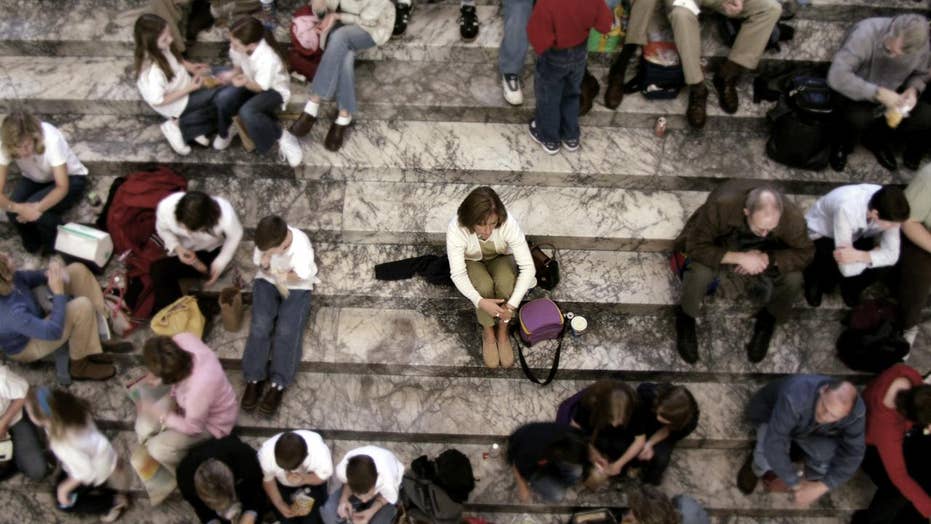Loneliness 'epidemic' in older adults may be due to increasing population, studies find

Could a new pill help people struggling with chronic loneliness?
A scientist from the University of Chicago Pritzker School of Medicine is trying to develop a pill that could help people struggling with chronic loneliness. She says the pill will be different from commonly used anti-depressants in that they are targeting loneliness more specifically.
The loneliness epidemic may not be such an epidemic after all, at least nothing that previous generations haven’t already seen. According to a pair of studies published by the American Psychological Studies, baby boomers between the ages of 55 and 75 aren’t any lonelier than their counterparts were in generations past, but it’s what happens after age 75 that could spell trouble.
WIDOWER INVITED TO EAT LUNCH WITH STUDENTS FOLLOWING WIFE'S DEATH
“We found no evidence that older adults have become lonelier than those of a similar age were a decade before,” one of the studies’ lead authors, Louise C. Hawkley, PhD, of NORC at the University of Chicago, said, according to EurekAlert. “However, average reported loneliness begins to increase beyond age 75, and therefore, the total number of older adults who are lonely may increase once the baby boomers reach their late 70s and 80s.”
Hawkley surmised that the increase in loneliness could be due to declining health or death of loved ones. She said that those who maintained good health and social relationships tended to be less lonely than others.
A similar study in the Netherlands produced similar results and found those born in later generations were less lonely because they felt more in control over their lives and were able to manage themselves better.
“In contrast to assuming a loneliness epidemic exists, we found that older adults who felt more in control and therefore managed certain aspects of their lives well, such as maintaining a positive attitude and set goals, such as going to the gym, were less lonely,” study author Bianca Suanet, PhD, of Vrije Universiteit Amsterdam, said, according to EurekAlert. “Additionally, as is well-known in loneliness research, participants who had a significant other and/or larger and more diverse networks were also less lonely.”
While Suanet said that traditional communities such as churches, neighborhoods and extended families have lost their strength over time, Hawkley suggested older people begin relying on modern technology as a means to maintain social connections.
Source: Read Full Article
